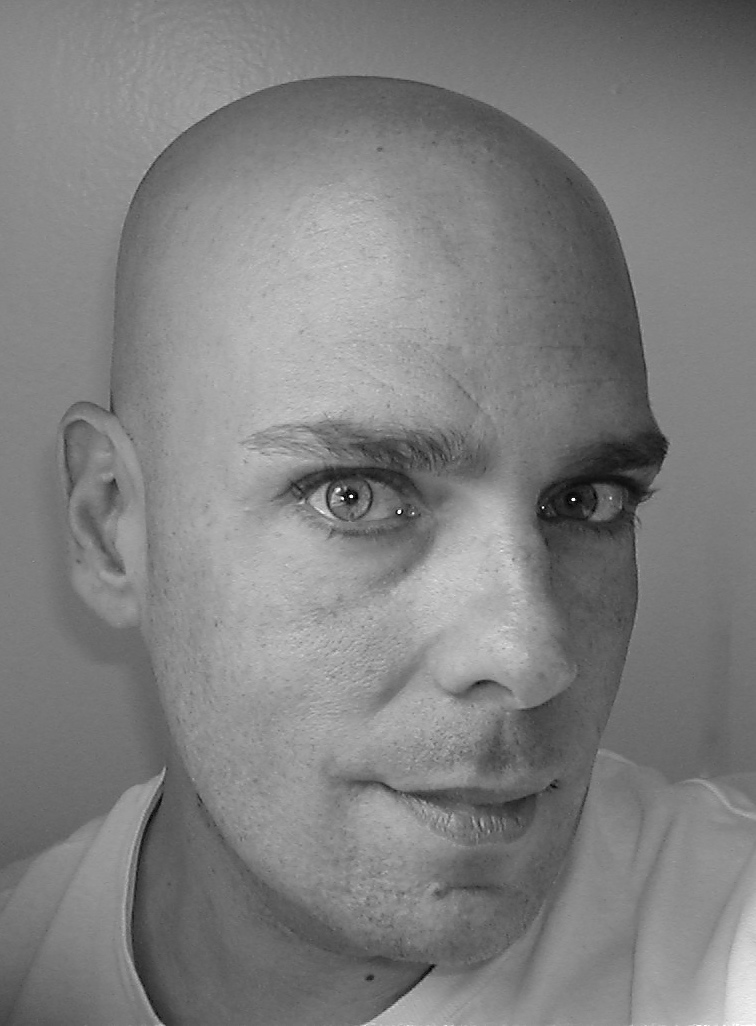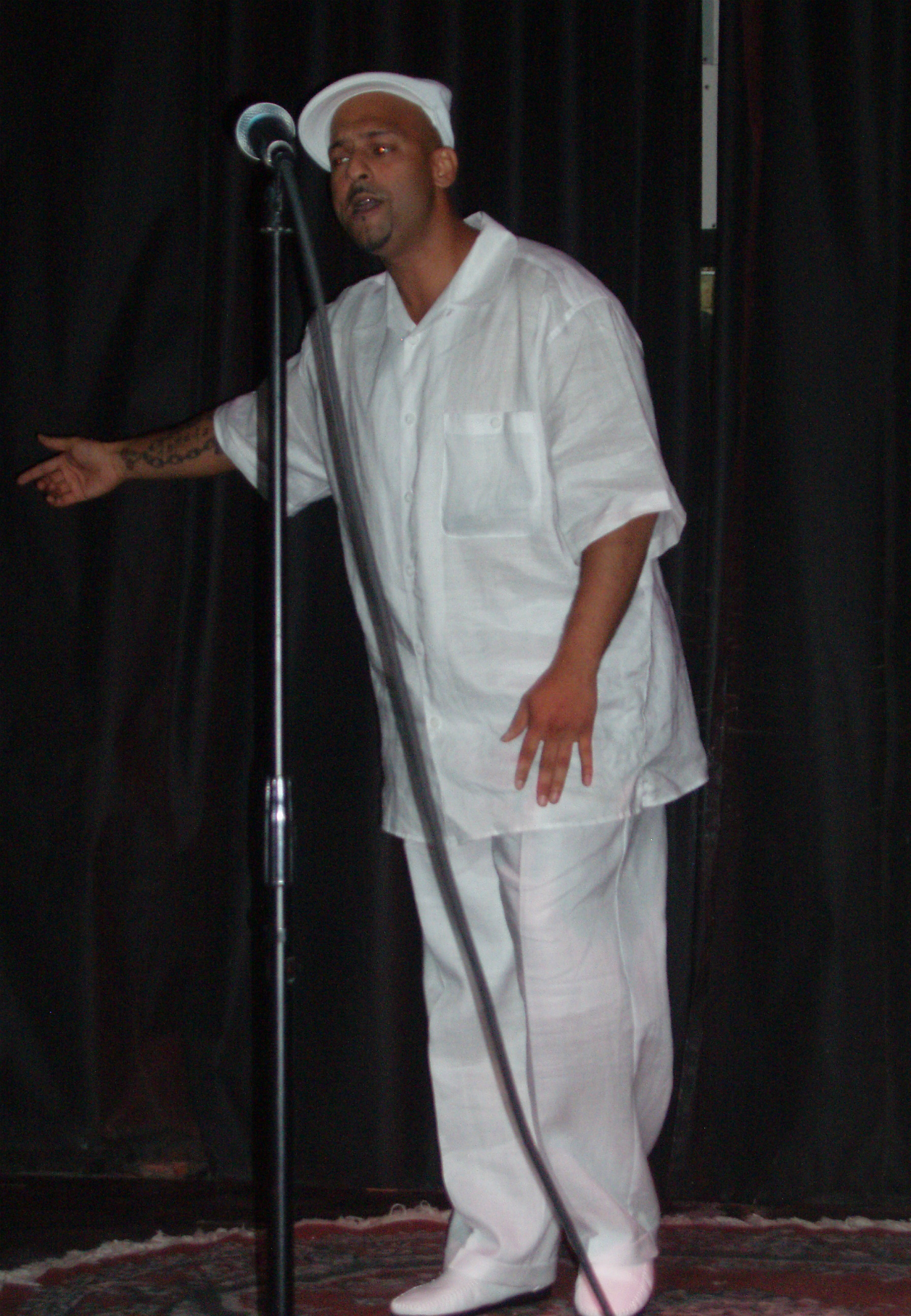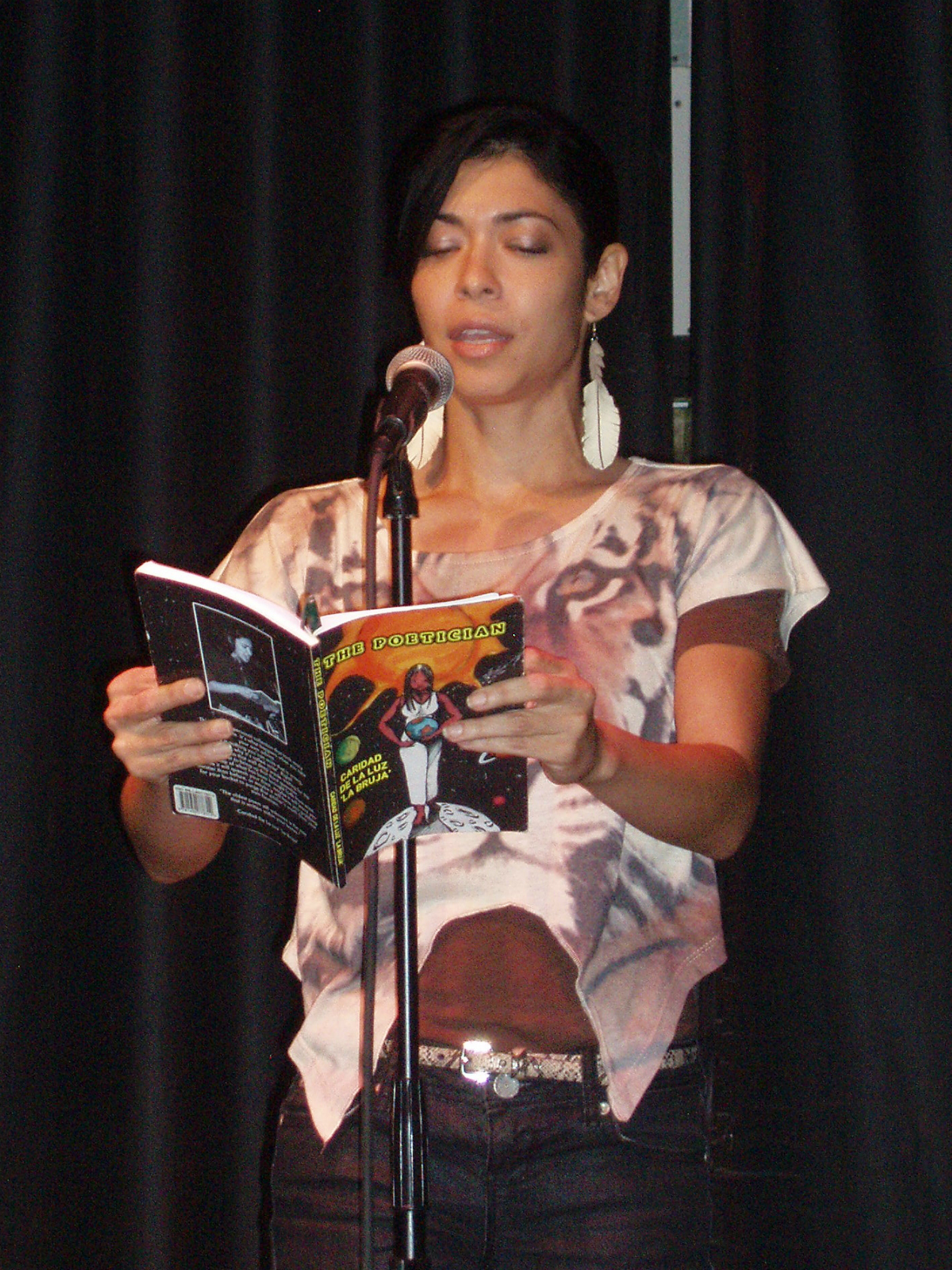Brendan Constantine, September’s Writer in Residence, was born in 1967 and named after Irish playwright Brendan Behan. An ardent supporter of Southern California’s poetry communities, he is one of the region’s most recognized authors. He is currently poet-in-residence at the Windward School and regularly conducts workshops in hospitals, foster homes, and with the Art of Elysium. His latest collections of poetry are Birthday Girl With Possum (2011 Write Bloody Publishing) and Calamity Joe (2012 Red Hen Press). He lives in Hollywood, California, at Bela Lugosi’s last address.
Hello again. My name is Brendan Constantine and welcome to my second post as guest “blogger.” I’ve been sitting here quite a while contemplating what to write, and I may’ve drifted into Overscrupulosity: over-thinking against under-whelming, editing before actually writing.
 If only I could embrace the maxim I use in the classroom: Writer’s Block is almost never a deficit of magic but a surplus of judgment. I believe this, I do, but I'm still stuck. This is particularly ironic because what I want to talk about is Speechlessness; a speechless woman and a speechless universe. Maybe I can get this rolling if I work backwards and start with the universe.
If only I could embrace the maxim I use in the classroom: Writer’s Block is almost never a deficit of magic but a surplus of judgment. I believe this, I do, but I'm still stuck. This is particularly ironic because what I want to talk about is Speechlessness; a speechless woman and a speechless universe. Maybe I can get this rolling if I work backwards and start with the universe.
Did you know we may’ve been contacted by beings from another world? Thirty-five years ago, an astronomer named Jerry Ehman was working with a SETI project (Search for Extra Terrestrial Intelligence) at the Perkins Observatory in Ohio. The radio telescope there is called “The Big Ear” and sits alone in a vast field. Every few days, Ehman would drive out to examine coded print-outs of any signals detected in a given piece of sky.
He was looking for a particular set of digits that would ensure the signal originated from outside our system. No one in his profession had ever seen them. But on August 15, 1977, Jerry Ehman saw a chain of figures so close to ideal, he circled them with a pen and wrote the word, “Wow.” This piece of paper was saved and can be visited online. Just look for “the Wow signal.”
Haven’t heard about this? Well, it’s a curious thing, but the buzz didn’t last long. You see, the signal was never heard again. We know it came from somewhere near Sagittarius, but in all this time there’s been nothing else to Wow about.
Poets are also big on repetition. What we call Form is really what we choose to repeat. Meter, rhyme, the whole of prosody is not a matter of what happens in one line, but what happens in the next.
Because there was no second signal, many astronomers believe the first must have been natural, random, a blank verse, perhaps the gasp of a dying sun. If someone were out there, wouldn’t they keep talking?
Which brings me to the speechless woman.
I’m going to call her Edith. We met a while back at an eldercare center in West Los Angeles. My visit was part of the Alzheimer’s Poetry Project, a program that brings poetry to people challenged with dementia. Routinely, I engage the room in recitations of classic poetry and then create new poems based on their responses. On this day I read Kipling’s haunting piece, “The Way Through The Woods.” We discussed other paths we knew, like the way to the store or the way home from school.
It was around this point that Edith, who seldom spoke, suddenly engaged. Really, a better term would be “detonated.”
“Brooklyn!” she said. “So many cracked sidewalks in Brooklyn when I was a girl. Nothing like’ em. You know, it was the Great Depression and...”
It was the Great Depression and Edith was maybe seven years old. After school, she’d often make her way to the jewelry district. Nobody was buying much jewelry then, but some merchants kept their hours. Edith had somehow made friends with a few who occasionally let her play with new stones.
“They let me be a princess,” she said, “I wore rings and bracelets, sometimes a tiara, and I sparkled like a dream. I was always good about giving everything back. I never stayed too long and I never fussed. ”
She stopped there and looked at me, half smiling, half wary. She’d forgotten who I was again. I put my hand out and we started over. Later, I asked one of the nurses if she’d heard that incredible story. She said she hadn’t. I wondered, still wonder, if Edith’s family ever has.
How many of her fellow seniors, so advanced in their senility, are regarded as “unreachable”? On what experience do we presume the distance a voice must travel, even our own? Does what we say come from the present, or the past? How far back does it start? Years? Light years? Have we spoken yet?
If this is too romantic a notion, too “airy-fairy,” look at it this way: If it’s been a while since you wrote anything you care about, is that any reason to despair?
Photo: Brendan Constantine. Credit: Lily Marker.
Major support for Readings/Workshops in California is provided by The James Irvine Foundation. Additional support comes from the Friends of Poets & Writers.





 If only I could embrace the maxim I use in the classroom: Writer’s Block is almost never a deficit of magic but a surplus of judgment. I believe this, I do, but I'm still stuck. This is particularly ironic because what I want to talk about is Speechlessness; a speechless woman and a speechless universe. Maybe I can get this rolling if I work backwards and start with the universe.
If only I could embrace the maxim I use in the classroom: Writer’s Block is almost never a deficit of magic but a surplus of judgment. I believe this, I do, but I'm still stuck. This is particularly ironic because what I want to talk about is Speechlessness; a speechless woman and a speechless universe. Maybe I can get this rolling if I work backwards and start with the universe. Dances With Wordz: Orisha Poetry, curated by Latinos NYC founder and CEO Raul K. Rios, featured performances celebrating the Yuroba faith of West Africa. The poets, garbed in white from head to toe, were an immaculate presence inside the
Dances With Wordz: Orisha Poetry, curated by Latinos NYC founder and CEO Raul K. Rios, featured performances celebrating the Yuroba faith of West Africa. The poets, garbed in white from head to toe, were an immaculate presence inside the  Nuyorican darling Caridad “La Bruja” De La Luz read from her first collection, The Poetician, then proceeded to rap and sing after reciting what she fondly called “straight up poetry.” Writer, actor, and painter Iya Ibo Mandingo performed last, conjuring images of home: luscious mangoes and coconuts. He ended his performance with a declarative poem, inciting reactions from the audience, which ranged from the gleeful to the guttural.
Nuyorican darling Caridad “La Bruja” De La Luz read from her first collection, The Poetician, then proceeded to rap and sing after reciting what she fondly called “straight up poetry.” Writer, actor, and painter Iya Ibo Mandingo performed last, conjuring images of home: luscious mangoes and coconuts. He ended his performance with a declarative poem, inciting reactions from the audience, which ranged from the gleeful to the guttural.